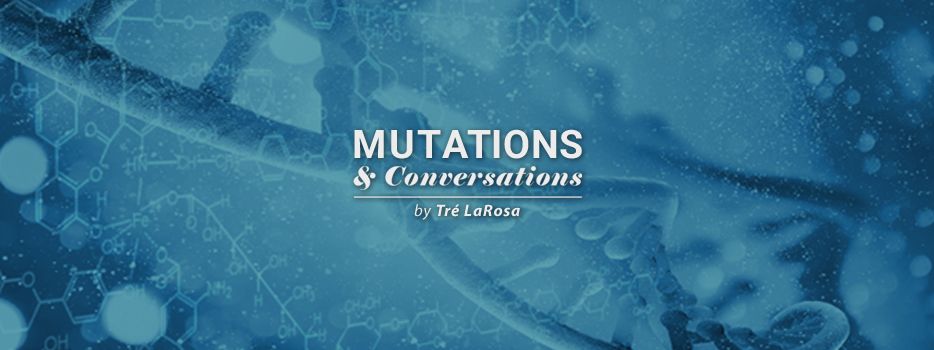Contemplating Our Identity
Written by |

A pandemic meets a life-changing medication. It sounds like the beginning of a modern love story.
Last year, a film came out about two teenagers with CF who fall in love. If you’ve been even tangentially near the CF community, you’re probably familiar with it. To reclaim their identities in spite of the life-shortening chronic disease, they violate the clinical recommendation to remain at least 6 feet apart from each other to avoid cross-infection, stepping an extra foot closer. It’s a beautiful, albeit cliché, sentiment about teenage love and reclaiming something outside of your control while also remaining mostly safe.
Everyone with this disease has pondered the CF identity. One doesn’t have to be a writer, musician, or poet to contemplate identity. One can simply meditate on how genetic disease affects movements through the world’s ether, as well as how others perceive that life. Nobody with CF who watched this film was uneducated about the identity crisis inflicted by the disease. CF, being rare, makes our identity a bit like that of a zoo animal. Our experience is the object of fascination: “Wow, I have no idea how you deal with that!” We’ve all heard this.
Stranger still, we are unable, at least by clinical guidelines, to spend time in close proximity with one another. Whenever I’ve talked about the CF experience, that part has surprised others most.
Ironically, we ourselves are complicit in the world’s fascination with chronic disease. We see others with CF — the only other people in the universe who can empathize with our experience — as people we must remain far away from. Many of us will never experience intimacy and touch with those who could be that puzzle piece we’re missing.
We can’t share a hug, handshake (or dap, as the fellas usually call it), or have sex and fall in love with the only ones who really understand us. It’s Shakespearean. Thus, it doesn’t surprise that making characters of us proved fruitful for Hollywood.
Whenever our lives undergo tumultuous change, our identities change, too. They don’t change entirely, but they are influenced. Since beginning Trikafta almost a year ago, my health has been its most stable, the best it has ever been.
I’m 26. Life wasn’t supposed to be this way for me. I’d never pictured days when I’d almost forget I have cystic fibrosis. I never imagined I could think decades into the future without worrying too much about my health’s stability. I never thought I’d be able to retire.
It’s an understatement to say that I’m fortunate. Many people with CF haven’t responded this positively to Trikafta, and far too many people across the globe don’t have access to modulators or even basic care. An article from The Washington Post last week talked about how the coronavirus pandemic has forced people to reconcile with death for the first time. It occurred to me that most people aren’t obsessed with the concept of death by the time they reach middle school.
Our identities are funny things. Some people in the CF community don’t like to see the disease as part of their identity while others choose to amplify that facet of their identity. The cool thing about identity is that what others see and what we know to be true don’t always have to be the same, and what really matters is how we perceive ourselves. Most people are preoccupied with themselves anyhow.
Throughout the worst of the pandemic and lockdown, we’ve seen people constantly talk about how disabled bodies are worth less than abled bodies: “Only x% of people die from COVID-19!” and, “If you’re worried about the pandemic, then just stay home. Not everybody should have to stay home!” We’ve heard all kinds of other justifications for why we alone should have to place our lives on hold and at risk for the sake of “society.”
This is what’s difficult about identity. We must reconcile our identity with the world we live in. I don’t have a simple solution for how to do that, but I can say that your identity is valid, legitimate, and dynamic. All of ours are. I enjoy the journey of exploring my identity every day. I hope you do, too.
Follow along with my other writings at my humbly named site, www.trelarosa.com, or subscribe to my newsletter “sonder, essays” at trelarosa.substack.com.
***
Note: Cystic Fibrosis News Today is strictly a news and information website about the disease. It does not provide medical advice, diagnosis, or treatment. This content is not intended to be a substitute for professional medical advice, diagnosis, or treatment. Always seek the advice of your physician or other qualified health provider with any questions you may have regarding a medical condition. Never disregard professional medical advice or delay in seeking it because of something you have read on this website. The opinions expressed in this column are not those of Cystic Fibrosis News Today, or its parent company, Bionews, and are intended to spark discussion about issues pertaining to cystic fibrosis.







Leave a comment
Fill in the required fields to post. Your email address will not be published.